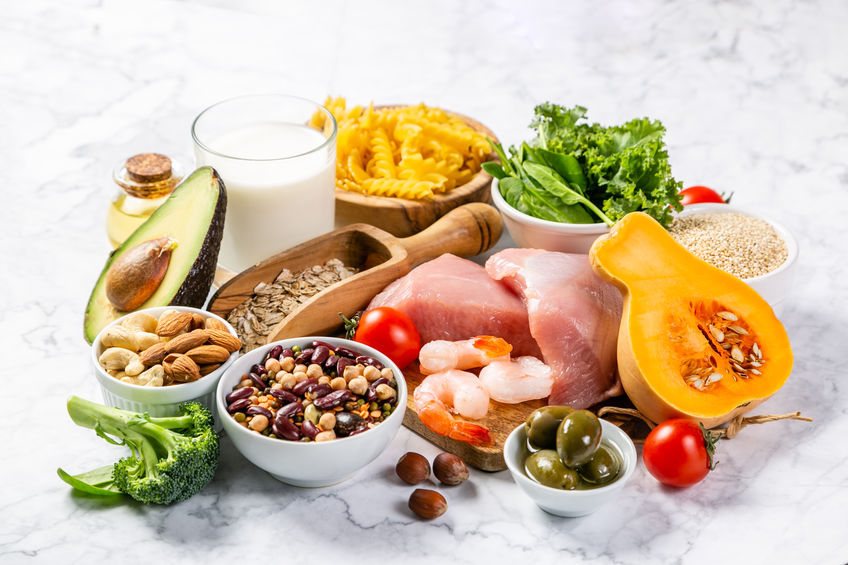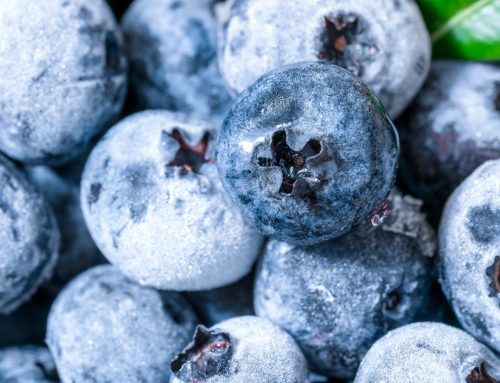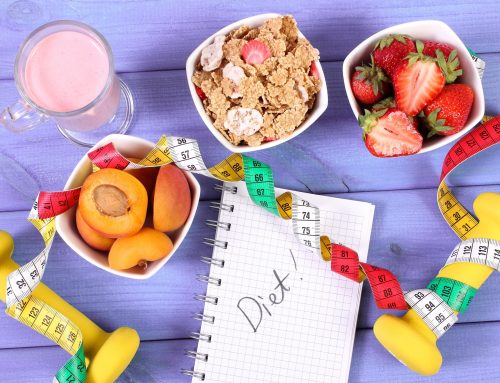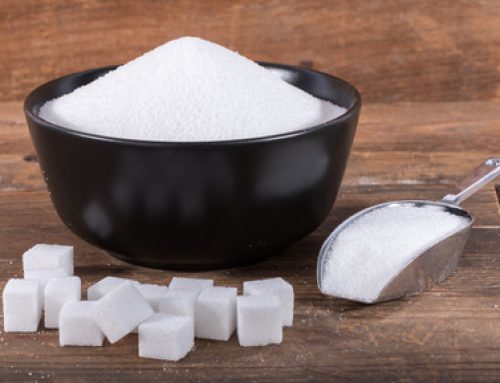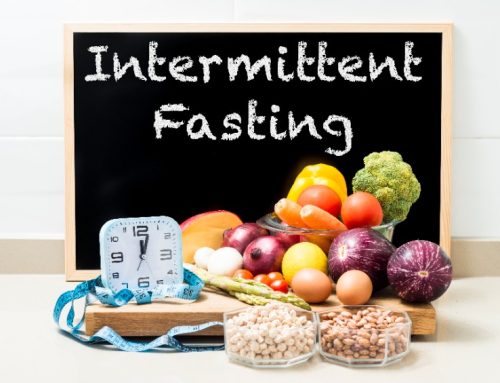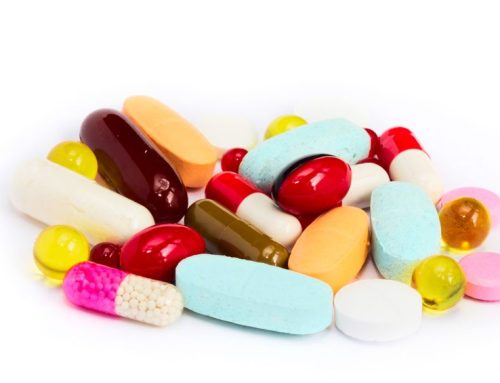Here are some healthy keto foods to eat on a ketogenic diet. Some keto diets recommend fatty meats and butter, whereas some recommend healthy keto foods.
1. Seafood
Fish and shellfish are very keto-friendly foods. Salmon and other fish are rich in B vitamins, potassium, and selenium, yet virtually carb-free. However, the carbs in different types of shellfish vary. For instance, while shrimp and most crabs contain no carbs, other types of shellfish do.
Here are the carb counts for 3.5-ounce (100-gram) servings of some popular types of shellfish:
• clams: 4 grams
• mussels: 4 grams
• octopus: 4 grams
• oysters: 3 grams
• squid: 3 grams
2. Low-carb vegetables
Non-starchy vegetables are low in calories and carbs, but high in many nutrients, including vitamin C and several minerals. Vegetables and other plants contain fiber, which your body doesn’t digest and absorb like other carbs. Many vegetables contain very few net carbs.
The net carb count for non-starchy vegetables ranges from less than 1 gram for 1 cup of raw spinach to 7 grams for 1 cup of cooked Brussels sprouts.
• cauliflower can be used to mimic rice or mashed potatoes
• “zoodles” can be created from zucchini
• spaghetti squash is a natural substitute for spaghetti
Here are some examples of keto-friendly vegetables to include in your eating plan.
Keto vegetable list:
• asparagus
• avocado
• broccoli
• cabbage
• cauliflower
• cucumber
• green beans
• eggplant
• kale
• lettuce
• olives
• peppers (especially green)
• spinach
• tomatoes
• zucchini
3. Cheese
There are hundreds of types of cheese. Fortunately, most are very low in carbs and high in fat, which makes them a great fit for a ketogenic diet. But, it’s healthier to focus on the lower fat cheeses, generally the one with a harder texture, like mozzarella and provolone.
Here are some cheeses that are lower in carbs for a keto diet:
• blue cheese
• brie
• camembert
• cheddar
• chevre
• colby jack
• cottage cheese
• cream cheese
• feta
• goat cheese
• halloumi
• Havarti
• Limburger
• manchego
• mascarpone
• mozzarella
• muenster
• parmesan
• pepper jack
• provolone
• romano
• string cheese
• Swiss
4. Avocados
Avocados are incredibly healthy; 3.5 ounces (100 grams), or about one-half of a medium avocado, contain 9 grams of carbs.
5. Meat and poultry
Meat and poultry are considered staple foods on a ketogenic diet. Fresh meat and poultry contain no carbs and are rich in B vitamins and several important minerals. They’re also a great source of high-quality protein, which has been shown to help preserve muscle mass during a very low carb diet.
Meat and poultry do not contain carbs and are rich in high-quality protein and several nutrients. Lean proteins like chicken, turkey and fish should be emphasized.
6. Eggs
Eggs are one of the healthiest and most versatile foods on the planet. One large egg contains less than 1 gram of carbs and about 6 grams of protein, making eggs an ideal food for a ketogenic lifestyle. In addition, eggs have been shown to trigger hormones that increase feelings of fullness and satiety.
It’s important to eat the entire egg, as most of an egg’s nutrients are found in the yolk. This includes the antioxidants lutein and zeaxanthin, which help protect eye health. Although egg yolks are high in cholesterol, consuming them doesn’t raise blood cholesterol levels in most people. In fact, eggs appear to modify the size of LDL particles in a way that reduces the risk of heart disease. Some studies show that 5-6 eggs per week are safe, but you might want to add more bulk to your egg dishes by using some egg whites.
7. Olive oil
Olive oil, avocado oil, and canola oils are among the healthiest because they are high in monounsaturated fats and low in saturated fats, making them heart healthy additions to your diet. These oils also contain powerful antioxidants that help ward off disease.
8. Plain Greek yogurt and cottage cheese
Plain Greek yogurt and cottage cheese are healthy, high protein foods. A half cup (105 grams) of plain Greek yogurt provides 4 grams of carbs and 9 grams of protein. That amount of cottage cheese provides 5 grams of carbs and 11 grams of protein. Both yogurt and cottage cheese have been shown to help decrease appetite and promote feelings of fullness.
Either one makes a tasty snack on its own. However, both can also be combined with chopped nuts, cinnamon, or other spices for a quick and easy keto treat.
9. Nuts and seeds
Nuts and seeds are healthy, high fat, and low-carb foods. Frequent nut consumption has been linked to a reduced risk of heart disease, certain cancers, depression, and other chronic diseases and they’re high in fiber, which can help you feel full and absorb fewer calories overall.
Although all nuts and seeds are low in net carbs, the amount varies quite a bit among the different types.
Here are the carb counts for 1 ounce (28 grams) of some popular nuts and seeds:
• almonds: 2 grams net carbs (6 grams total carbs)
• Brazil nuts: 1 gram net carbs (3 grams total carbs)
• cashews: 8 grams net carbs (9 grams total carbs)
• macadamia nuts: 2 grams net carbs (4 grams total carbs)
• pecans: 2 grams net carbs (4 grams total carbs)
• pistachios: 5 grams net carbs (8 grams total carbs)
• walnuts: 2 grams net carbs (4 grams total carbs)
• chia seeds: 1 gram net carbs (12 grams total carbs)
• flaxseeds: 0 grams net carbs (8 grams total carbs)
• pumpkin seeds: 3 grams net carbs (5 grams total carbs)
• sesame seeds: 3 grams net carbs (7 grams total carbs)
10. Berries
Most fruits are too high in carbs to include on a ketogenic diet, but berries are an exception. Berries are low in carbs, high in fiber and loaded with antioxidants. In fact, raspberries and blackberries contain as much fiber as digestible carbs.
Here are the carb counts for 3.5 ounces (100 grams) of some berries:
• blackberries: 11 grams net carbs (16 grams total carbs)
• blueberries: 9 grams net carbs (12 grams total carbs)
• raspberries: 6 grams net carbs (12 grams total carbs)
• strawberries: 7 grams net carbs (9 grams total carbs)
11. Butter and cream
Butter and cream are good fats to include in moderation on a ketogenic diet. Each contains only trace amounts of carbs per serving. For many years, butter and cream were believed to cause or contribute to heart disease due to their high saturated fat contents. However, several large studies have shown that, for most people, saturated fat isn’t linked to heart disease.
12. Olives
Olives provide the same health benefits as olive oil, only in solid form. Oleuropein, the main antioxidant found in olives, has anti-inflammatory properties and may protect your cells from damage.
Olives vary in carb content due to their size. However, half of their carbs come from fiber, so their digestible carb content is very low. Ten olives (34 grams) contain 2 grams of total carbs and 1 gram of fiber. This works out to a net carb count of about 1 gram depending on the size.
13. Unsweetened coffee and tea
Coffee and tea are healthy, carb-free drinks. They contain caffeine, which increases your metabolism and may help improve your physical performance, alertness, and mood. What’s more, coffee and tea drinkers have been shown to have a significantly reduced risk of diabetes.
Adding moderate amounts of heavy cream to coffee or tea is fine but stay away from “light” coffee and tea lattes. These are typically made with nonfat milk and contain high carb flavorings.
14. Dark chocolate and cocoa powder
Dark chocolate and cocoa are delicious sources of antioxidants and flavanols, which may help reduce the risk of heart disease by lowering blood pressure and keeping arteries healthy.
Chocolate can be part of a ketogenic diet. However, it’s important to choose dark chocolate that contains a minimum of 70% cocoa solids, preferably more, and eat in moderation. One ounce (28 grams) of unsweetened chocolate (100% cocoa) has 3 grams of net carbs.
Summary of Healthy Keto Foods
A short-term modified ketogenic diet can be used to achieve weight loss, blood sugar management, and other health-related goals and can include a variety of nutritious, tasty, and versatile foods that allow you to remain within your daily carb range.


